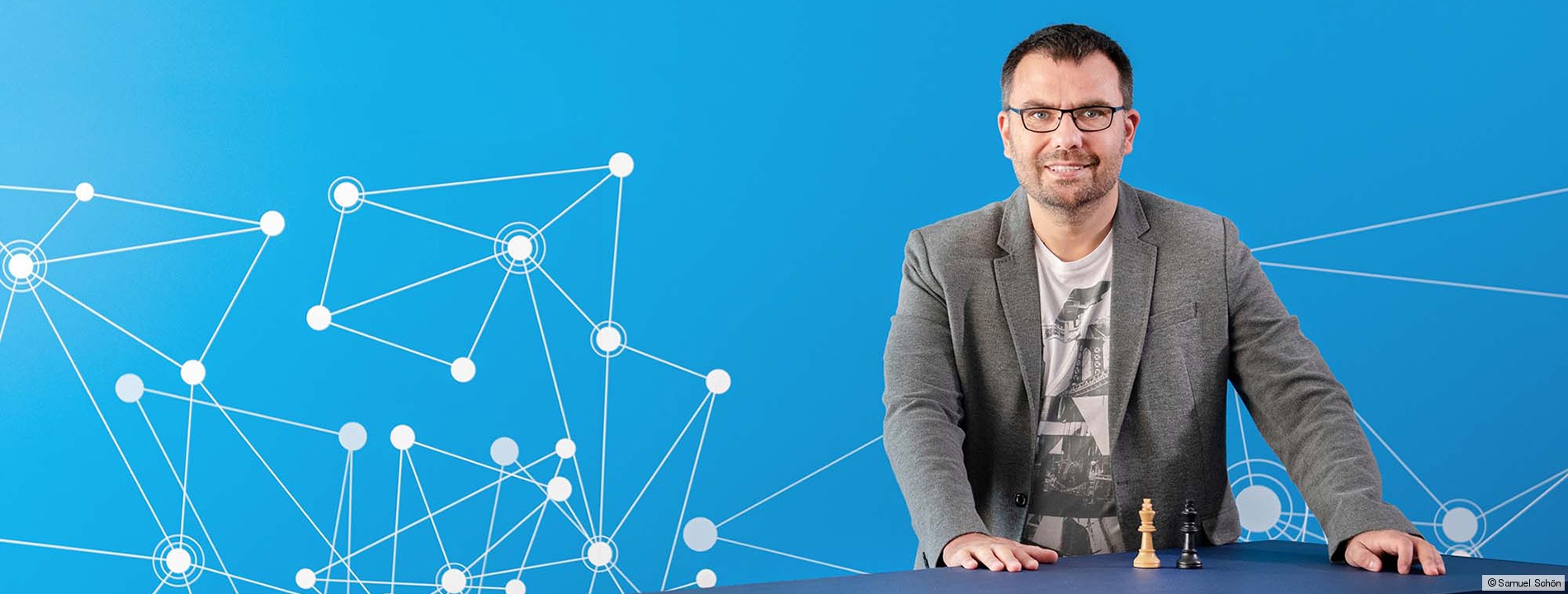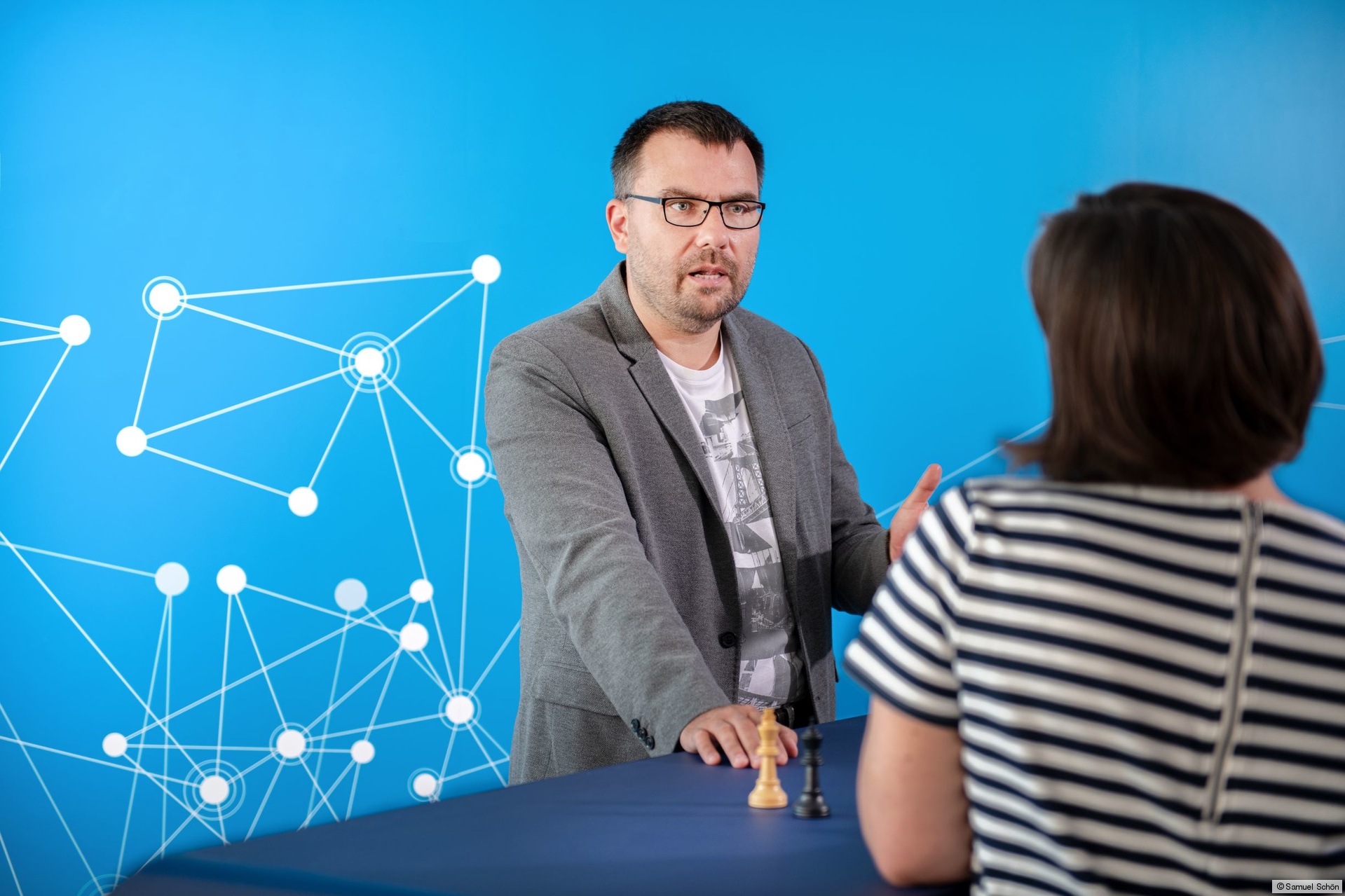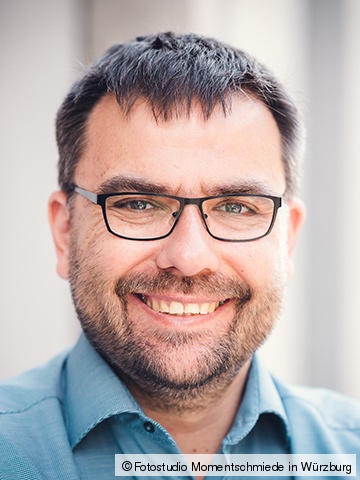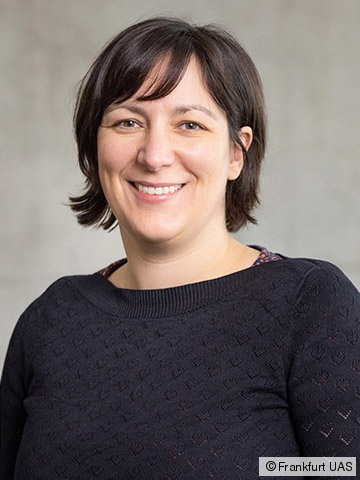The Innovation Project
As part of his innovation professorship, Prof. Dr. Meyer will research the new technical possibilities of automated jurisdiction ("Robo-Judge"). To this end, he will set up an international competence center at the Frankfurt UAS from 2022. His goal is to controversially illuminate new potentials of disruptive technologies. The following areas are of particular interest:
- Predictive Justive Tools: self-learning programs that make forecasts for court decisions based on large data sets
- Smart Courts: digital process management, in which some typical stages of the process no longer have to be carried out in front of the judge
- Smart Contract Arbitration: automation of contracts in a blockchain and integration of corresponding dispute resolution procedures
In Conversation with Prof. Dr. Olaf Meyer
Mr. Meyer, you brought two chess pieces that symbolize your innovation project. Why?
As a child I played a lot of chess. At that time the first domestic chess computers appeared. I can remember that the first computers were so bad that I was able to beat them when I was ten years old. Over the years the computers got better and better and unbeatable for me. Then came the moment when world chess champion Garry Kasparov lost a match against a chess computer for the first time in the late 1990s. And today - 40 years later - there are no longer any serious competitions between man and machine.
Based on this technical development, my consideration and that of many colleagues is: Is it possible to create a legal computer that makes legal decisions that have so far been made by a judge? My project is a look into the future, at the third generation of legal programs: Legal Tech 3.0. This is the generation we are dreaming of and trying to imagine right now. I am specifically concerned with the question of whether a legal decision can be transferred to a machine in such a way that it is just as fair, comprehensible and balanced or even better than a human decision.
What contribution can this project make to our society?
The main added value of the project is Access to Justice. The use of legal computers enables people to make legal decisions that have previously been denied them due to time, cost or other reasons. The second added value is that decisions are made more objectively. At the moment it sometimes depends on which judge is responsible for a case. In labor law, the question of whether its political orientation is employee-friendly or employer-friendly can be decisive. A computer, on the other hand, is neutral, it implements what is given to it. Of course, the programming also depends on the settings of the programmers. But it would be a step towards greater objectification.
Does the project have a personal meaning for you?
This research project gives me the opportunity to work on a front where a lot is moving at the moment. My goal is to develop a focus in the coming semesters, to organize a conference or lecture series, or to apply for a third-party funded project. A lot is possible on this topic at the moment.
Thank you for the interview!




